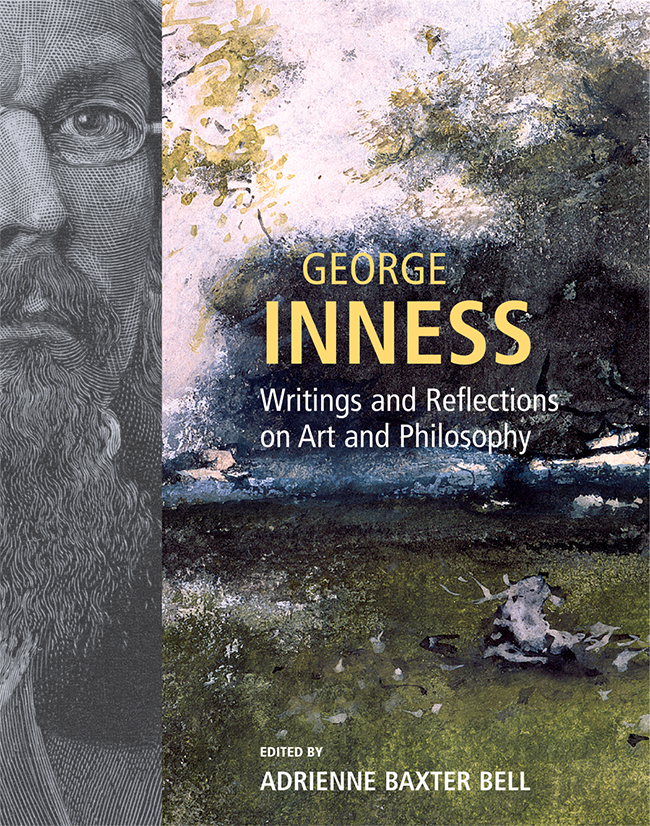
Adrienne Baxter Bell holds a Ph.D. in American art from Columbia University, New York, and is the author of George Inness and the Visionary Landscape (George Braziller, 2003). She lives in Upper Montclair, New Jersey.
George Inness: Writings and Reflections on Art and Philosophy
Edited by Adrienne Baxter Bell
Hardcover, 288 pages
ISBN 13: 978-0-8076-1567-6
$35.95 (Can $41.00)
An anthology of key statements on ideas central to American social and cultural thought by nineteenth-century artist George Inness, widely considered America’s greatest landscape painter. The writings of nineteenth-century American artists, such as Washington Allston, Asher B. Durand, and Thomas Cole, have long been considered essential expressions of the American creative perspective; they helped to establish the philosophical underpinnings of the nation’s art. Now, for the first time, the ideas of George Inness (1825–1894) are assembled in one volume. George Inness: Writings and Reflections on Art and Philosophy exhibits Inness as an artist-philosopher not only deeply engaged with the history of art but also with ideas that resided at the center of American social and intellectual history.
A self-taught artist, Inness produced landscapes in the conventional Hudson River School style before finding inspiration for his more expressive, intimate scenes in Barbizon painting. The works from the last fifteen years of his life, with their enigmatic combination of structured forms and uncertain spaces, anticipated many of the essential tenets of American and European modernism. At the heart of Inness’s inventions resided his belief that art and ideas were kindred pursuits. In search of knowledge, Inness wrote and discoursed on evolutionary biology, science, mathematics, numerology, psychology, philosophy, and especially theology. This volume assembles the key sources, many hitherto unpublished, on Inness’s ideas: his essays, poems, and letters; interviews and public debates with leading critics; comments in biographical profiles; and key passages from George Inness: Life, Art, and Letters, his son’s biography. Together, these texts reveal Inness’s discontent with the gradually diminishing authority of the divine from the story of human creation, a conflict at the center of nineteenth-century American religious and social thought and one that inspired Inness’s own magnificent contributions to America’s cultural heritage.
